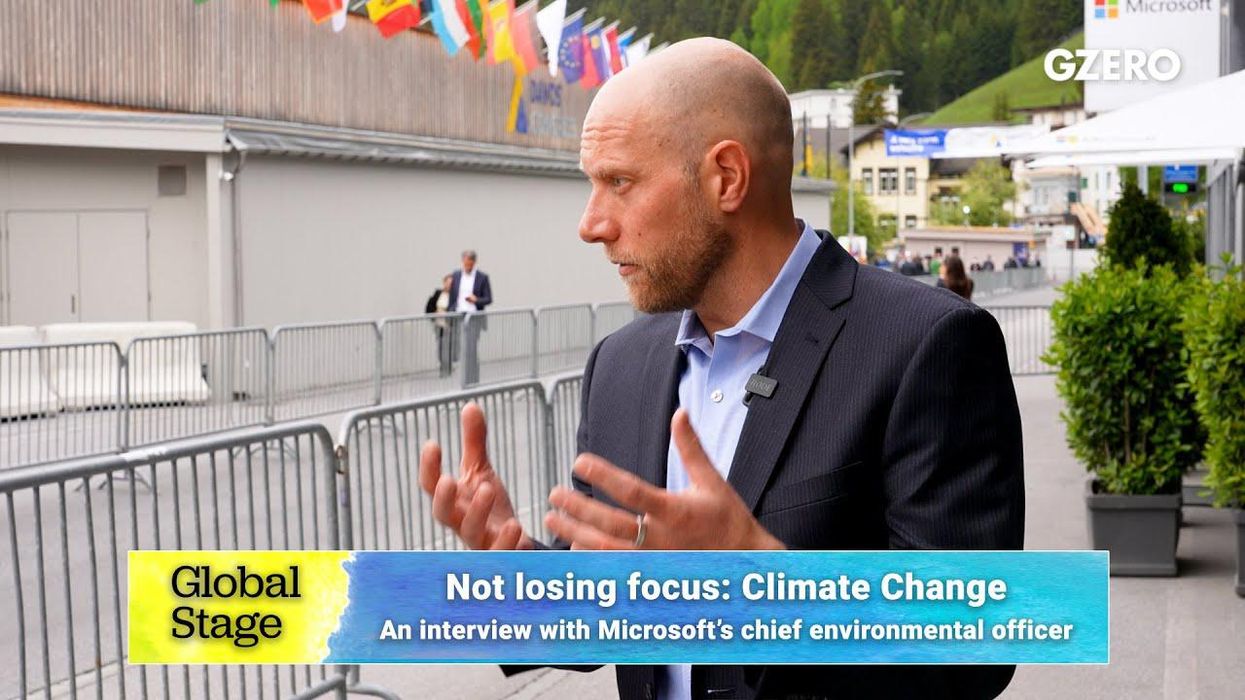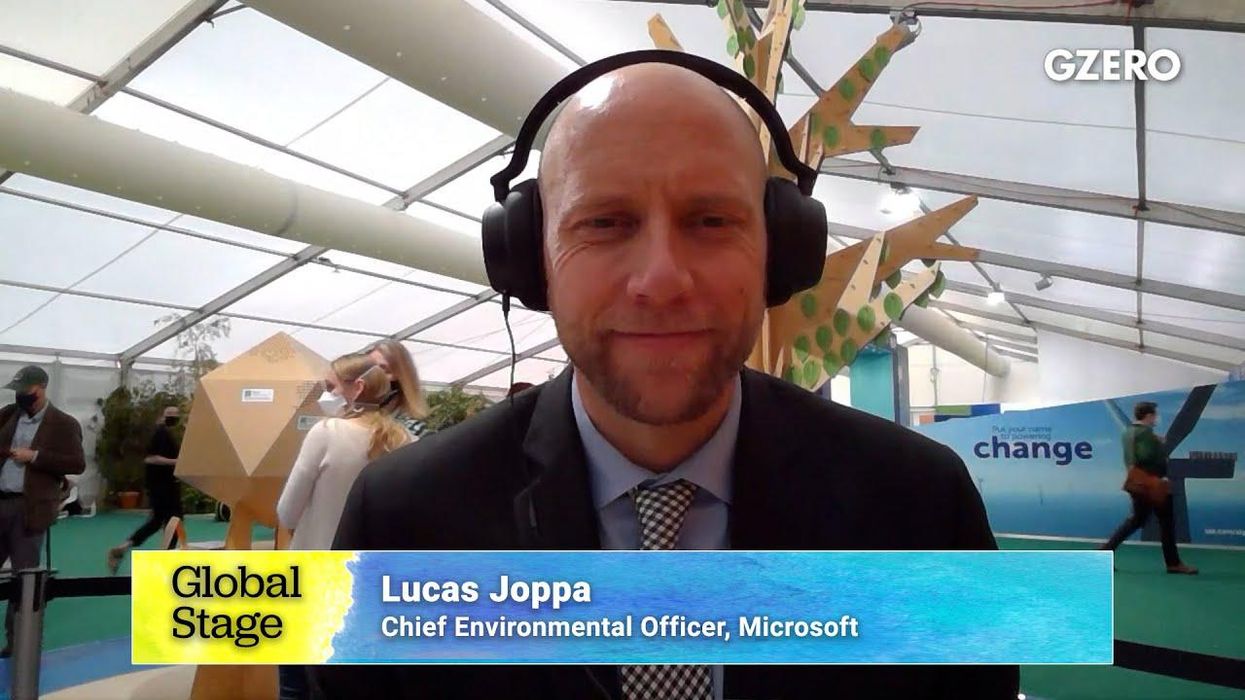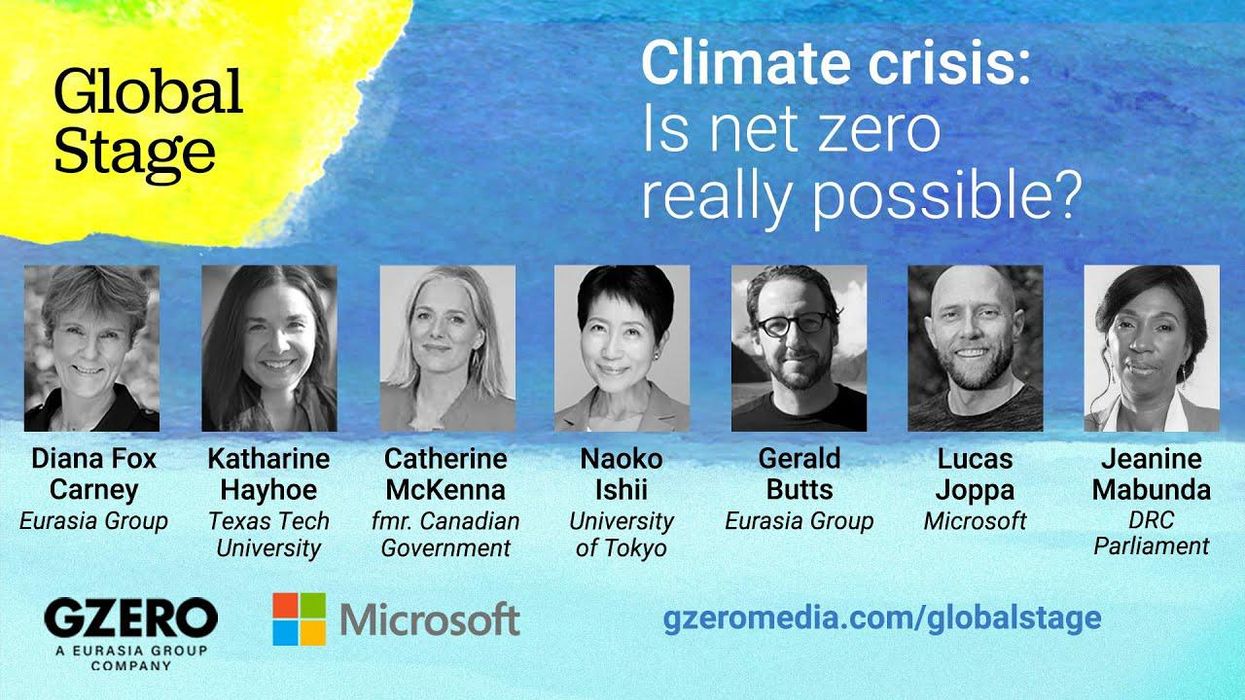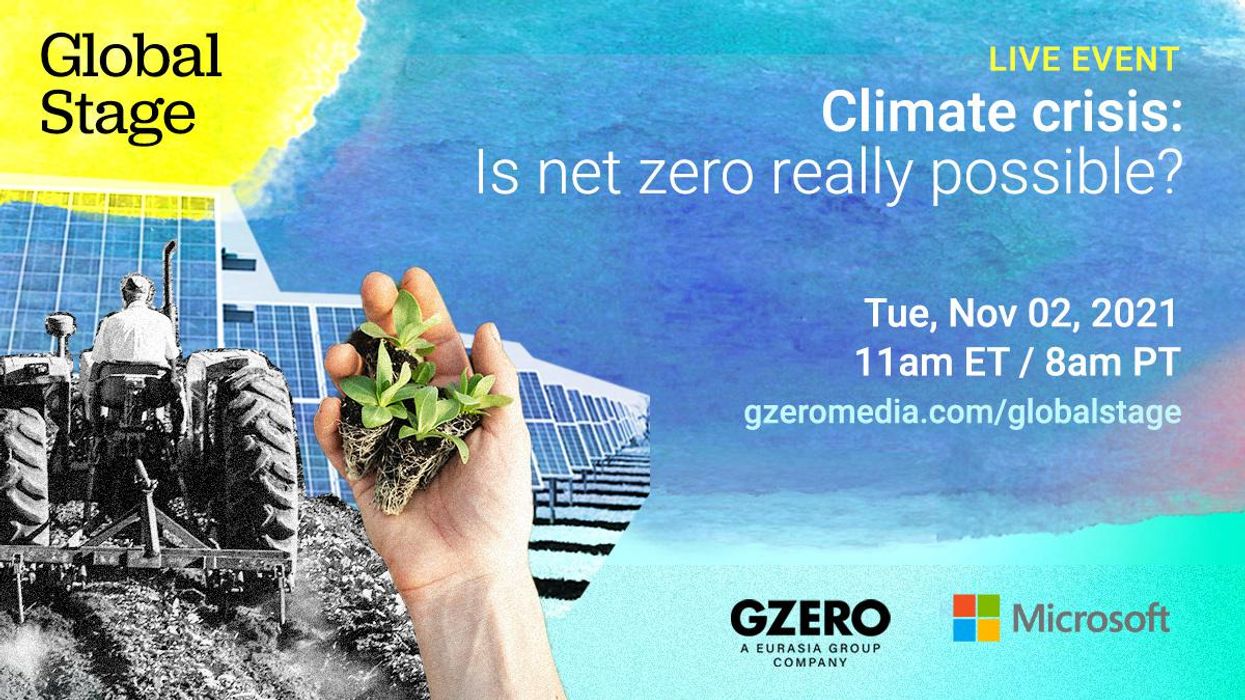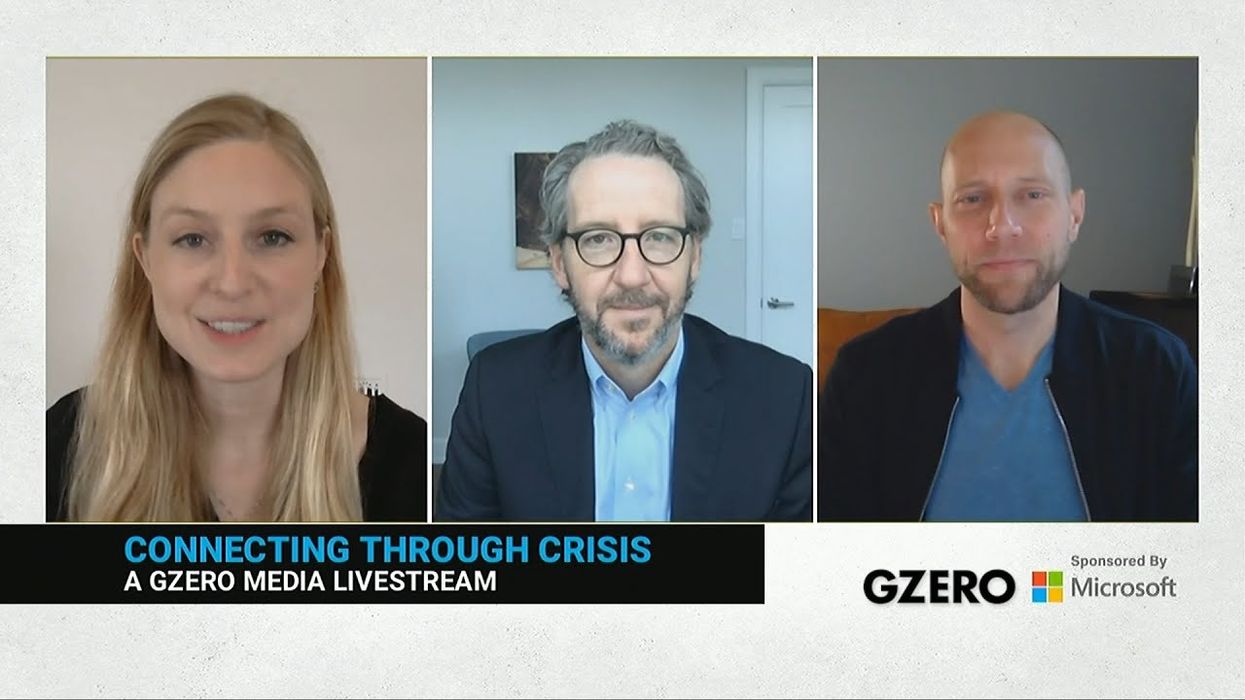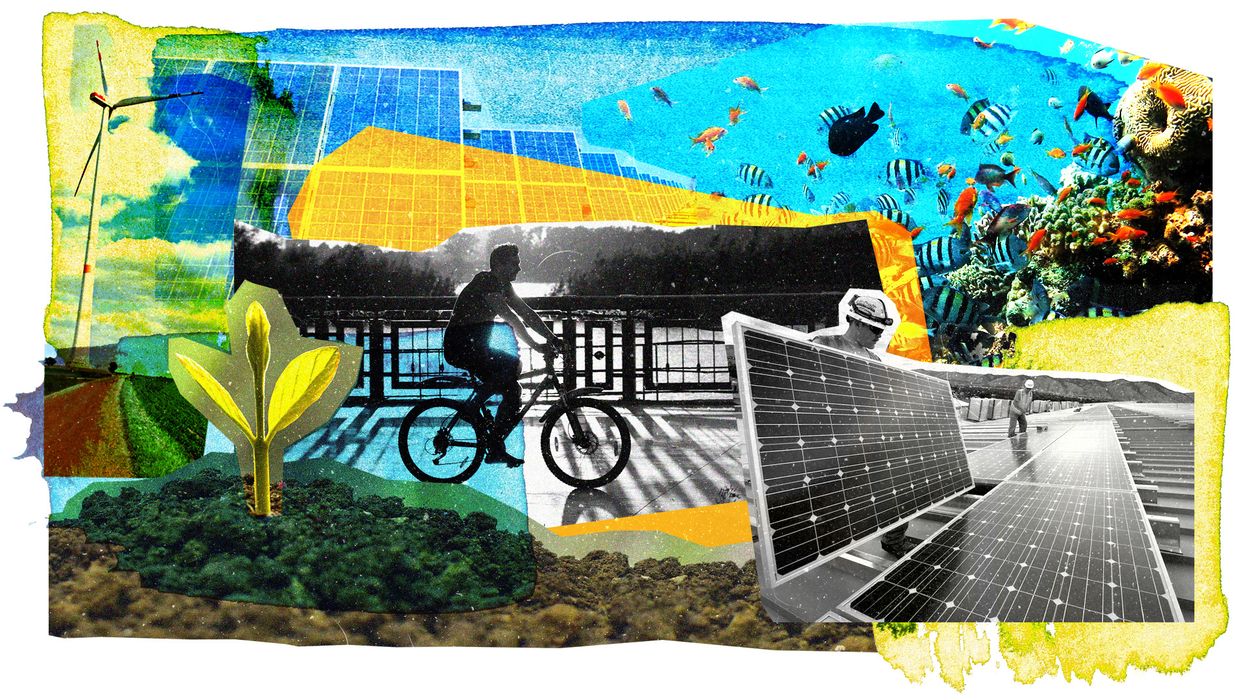Sustainability
War in Ukraine sets energy transition in "hyperdrive"
GZERO Media caught up with Microsoft's Chief Environmental Officer Lucas Joppa at the World Economic Forum in Davos to discuss ways to keep nations focused on climate change amid the converging crises of war and pandemic.
May 24, 2022
